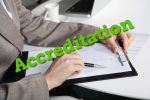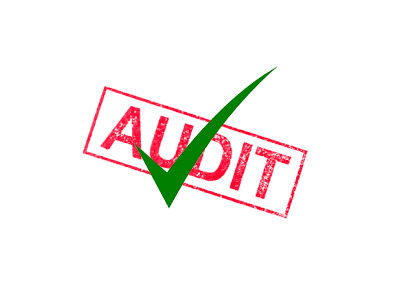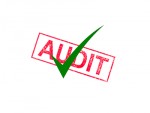Accreditation is an internationally accepted independent oversight process for maintaining operational standards and ensuring confidence. It is accepted by many governments and private industries, including at various levels of the global food supply.
Recognized within the food industry and endorsed by the Global Food Safety Initiative (GFSI), the process of accredited certification has become essential for business.
In the United States, the Food and Drug Administration (FDA) Food Safety Modernization Act (FSMA), in its rule on accredited third-party certification, incorporates the accreditation process for oversight over third-party certification bodies certifying foreign food facilities manufacturing for import into the United States.
With accredited services increasingly becoming an integral part of business operations, many wonder how the processes of accreditation and certification work.
Accreditation is the process of ensuring that an organization has the necessary technical competence to perform a specific task, and has met and continues to meet a specific set of operational requirements. An accreditation body (AB) uses internationally established techniques and procedures to assess conformity assessment bodies (CABs) against recognized standards to ensure their impartiality, competence, and ability to produce consistently reliable, technically sound and impartial results.
Accreditation provides formal recognition that an organization is competent to carry out specific tasks, and provides an independent assessment of conformity assessment bodies (CABs)1 against recognized standards to ensure their impartiality and competence. Accreditation provides assurance to a CAB’s customers and industry that the CAB continuously operates according to internationally accepted criteria applicable to CAB’s scope of accreditation.
Although there is flexibility for an AB to design its accreditation process within the constraints of ISO/IEC 17011, Conformity assessment – General requirements for accreditation bodies accrediting conformity assessment bodies, the standard to which all internationally recognized ABs must conform, some aspects are mandatory.
As part of the application process, the applicant for accreditation submits information about the desired scope of accreditation and its documented quality management system. The AB conducts a document review to verify that the applicant has documented all management system requirements specified in the relevant criteria and any other applicable requirements. Additional requirements could include, for example, those mandated by a specific regulatory authority or industry. During the assessment, through witnessing of the CAB conducting a conformity assessment activity, interviews of personnel, and review of records and other objective evidence, the AB’s assessment team verifies the CAB’s technical competence and implementation of the quality management system.
The applicant is required to provide corrective action for all identified deficiencies. Only after all identified issues have been addressed can the accreditation decision process begin. To ensure that the accreditation decision is impartial, members of the assessment team do not take part in the decision. The designated decision maker, which may be a group or an individual, is responsible for reviewing the assessment team’s recommendation and ensuring that all accreditation requirements have been met by the applicant and are properly documented before granting accreditation.
A certificate and scope of accreditation are issued only after a favorable accreditation decision.
Once accredited, the CAB is regularly re-assessed to ensure continued conformance to the accreditation requirements, and to confirm that the required standard of operation is being maintained.
To ensure transparency, the AB is required to make publicly available information on the status and scope of accreditation for each accredited CAB. Any changes occurring after initial accreditation, such as suspension for all or part of the scope of accreditation, are published on the AB’s website.
It is important to note while ABs provide oversight over CABs, internationally recognized ABs are themselves subject to regular oversight from organizations orchestrating the harmonization and recognition of the accreditation process internationally.
The International Laboratory Accreditation Cooperation (ILAC) and the International Accreditation Forum (IAF) provide this international oversight. ABs that are signatories of the ILAC and/or IAF mutual recognition agreements (MLAs or MRAs) must conform with the requirements of ISO/IEC 17011 as applicable program-specific requirements, and are admitted to the agreements for a specific capability, for example, as an accreditor for testing labs or for management systems certification bodies. Technical competence of the AB and conformance to the requirements is verified through rigorous on site evaluation by other member of the IAF or ILAC community.
Without international oversight, there would be no evidence or confirmation that an AB operates in accordance with international requirements when providing oversight of accredited CABs. This oversight provides assurance that the AB understands the CAB’s process and can attest to the CAB’s competence.
The IAF, MLA and ILAC agreements are internationally recognized forms of approval; signatories have demonstrated their compliance with specified standards and requirements. Accreditation by a signatory of the ILAC MRA and/or IAF MLA provides assurance that decisions are based on reliable results, thus minimizing risk.
This is of particular importance in the constantly evolving global food-supply network. Many specifiers, such as regulatory authorities, have acknowledged the importance of credible accreditation programs.
A number of government agencies in the United States and around the world, including the U.S. Consumer Product Safety Commission (CPSC), U.S. Environmental Protection Agency (EPA) and the Canadian Food Inspection Agency (CFIA), have mandated accreditation by an internationally recognized accrediting body for their programs.
Accreditation within the MLA/MRA process helps regulators meet their legislative responsibilities by providing assurance that testing, inspection and evaluation results are issued by organizations whose technical competence and compliance with specified criteria has been verified by an independent third party. It provides assurance to stakeholders, such as the regulatory authorities, that the accredited CAB operates in accordance with recognized and accepted criteria.
Continue to page 2 below.





